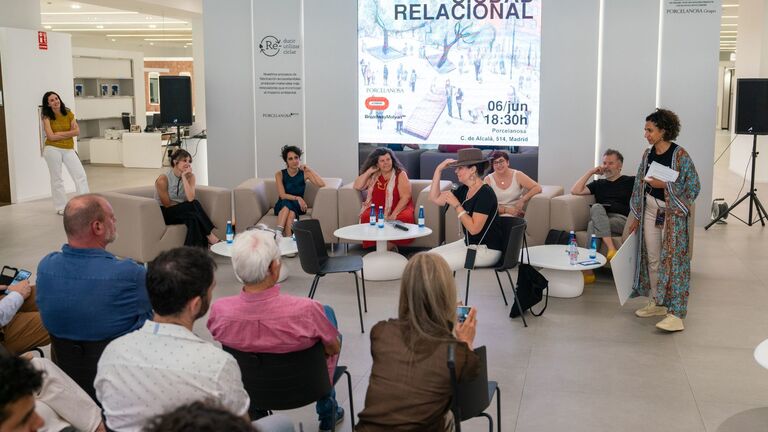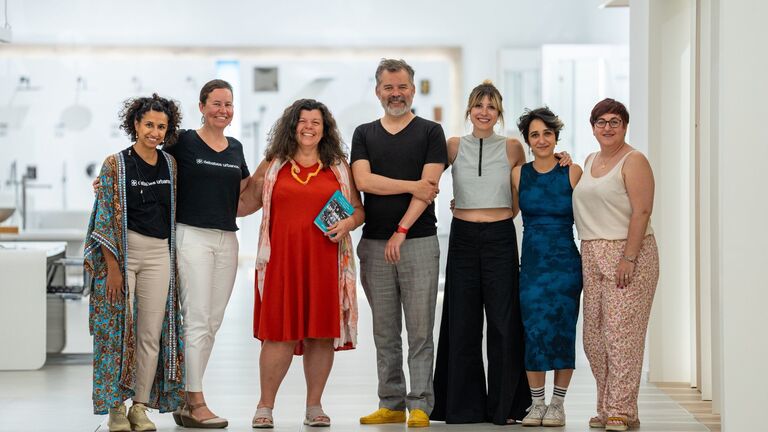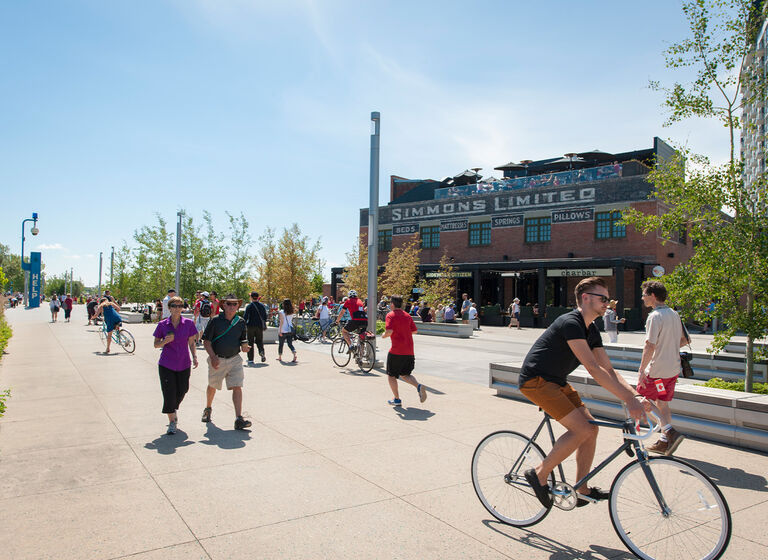In June 2024, Magda Plocikiewicz, an urban sociologist, and Eiman AlSakha, an architect from Broadway Malyan’s Madrid office, organized a thought-provoking debate with writers and commentators on the theme of “The Relational City.” The concept draws its name from Sonia Lavadinho’s book and envisions the city as a matrix of interconnected and evolving human relationships. Every citizen becomes involved in this relational web during their urban day, engaging in human interactions, enjoying public spaces, creating, reflecting, and getting excited. It emphasizes the delicate coexistence among the great human ecosystem represented by the city, encompassing a full range of sentiments, emotions, expressions, and exchanges.

This idea contrasts with the Functional City, which prioritizes operational and logistical efficiency but often neglects the vital emotional aspect of urban life. The debate identified seven distinct spatial manifestations through which the Relational City operates:
- The City of Encounters: Spaces intentionally designed or spontaneously used for social interactions.
- The City of the Exterior: Outdoor areas that invite people to stay and appreciate the environment.
- The Friendly City for All Generations: An inclusive and accessible city that encourages coexistence among different age groups and addresses various needs.
- The City of Doing and the Solidarity Third: Promotes collaboration, mutual support, volunteering, and social action.
- The City of Surprise: Introduces unexpected elements (such as urban art or muralism) to break urban monotony.
- The Edible City: Incorporates urban agriculture and food-sharing spaces.
- The City of Free Time: Provides leisure and recreational spaces to enhance quality of life.
As design professionals, the contributors argued that our mission should be to transform cities into more relational environments by creating spaces that invite encounters and co-creation through participatory processes. Sonia Lavadinho emphasized the need to shift the paradigm from the 20th-century focus on functional productivity to the 21st-century relational approach, which considers people as more than digital beings—recognizing their physical bodies and the importance of connection with oneself, others, and the natural and urban environment.

Other contributors included Edgar González (director of Elisava Acid House), Camino Cabañas (expert in public management and political communication), and Blanca León and María Heredia (co-founders of the Panartería art gallery). The event, convened by Broadway Malyan and Acieroid, was made possible with the support of Porcelanosa, who provided their showroom and technical facilities.
Debates Urbanos, a think tank dedicated to urban design, sociology, philosophy, architecture, and otherness in the city, organizes round tables, conferences, and art events in Barcelona, Madrid, and online. Their topics cover happy cities, public space, cultural rights, ethical urban paradigms, mental health, arts, homelessness, functional diversity, and more. For additional details, visit: Debates Urbanos.
https://www.debatesurbanos.com
Authored by: Magda Plocikiewicz, Eiman Al Sakha & Eva Gómez-Fontecha
